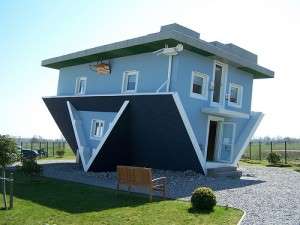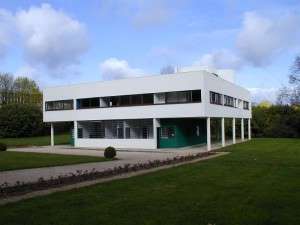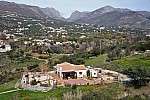PROPERTIES ON NON-DEVELOPABLE LAND AFFECTED BY RECENT FIRE IN COSTA DEL SOL

As a result of the terrible fire initiated last Thursday 30th in Coin, an estimate of 100 to 200 properties built on non-developable land within the municipal area of Coín, Mijas, Marbella, Ojén and Alhaurín el Grande were severely damaged and some of them completely ruined.
In this year 2012 the Decree 2/2012 for the regulation of buildings and scattered rural settlements on non-developable land in Andalusia was passed by the Andalusian Regional Government in January to put a stop to the problem of thousand of properties on non-developable land. However, this Decree does not currently apply nor does it mean the legalization of these properties, as it was already discussed on once of our previous article
According to the above mentioned Decree, most of these fire-affected properties are considered assimilated to out of ordination housing, as they were built without construction permits or infringing their condition and the municipal General Plan for Urban Planning PGOU. Therefore, no measures can be adopted to recover their legality, which has been disrupted over time and they cannot either be legalized. The only permission authorized by this Decree is “…works for the repair and maintenance which may require the strict maintenance of the security, occupation and health standards of the property” (Article 8.3 of the Decree).
In the event of some fire-affected properties considered out of ordination—properties built in accordance with the municipal PGOU, but considered “out of its ordination” after the PGOU modification, the permitted construction works shall be provided by the municipal PGOU, which is currently under development in most of the municipalities. The Andalusian Town Planning Act L.O.U.A. shall be also considered as it provides that “…only repair works for the strict maintenance of property occupation or usage…” as well as “…exceptionally partial and circumstantial works may be permitted for the property consolidation…”. It is worth mentioning that only a few of these properties may be under the “out of ordination” condition.
This restriction or limitation to alter or renovate properties on non-developable land is provided by the definition on the Decree for “scattered rural properties”, which are included within the “out or ordination” concept and its variant “assimilated”. In accordance with the case law, this concept has been defined as “constructions to disappear once their useful life possibilities finishes—the “out of ordination” condition aims the usage of property until it finishes over time, ends up as a ruin and naturally disappears. For this reason, the Andalusian regulation always provides the granting of permits for this type of constructions for the strict maintenance and under exceptional circumstances.
The Decree does not provide the legalization of these properties. In fact, part of the status for these “assimilated to out of ordination” properties considered as illegal, makes them to be given a definition and their use limited, since no measures can be taken to protect their legality, so that they are “attacked”, as too much time has elapsed since the were built.
In the event of a disaster as fire, flood, earthquake, landslides, etc…, in which a property is in ruins or very damaged and cannot be used again for the purposes to be occupied as a residence, if we abide by the current regulations on these events, it would be very complicated to grant a construction o repair permit for these properties, since it is against the concept of “out of ordination” and “assimilated to out of ordination” provided by the Decree.
The problem lies in a Decree which does not give any solution to the current legal condition of these properties, which have been tolerated by the Andalusian Regional Government and Town Councils for many years. During all these years, nobody has done anything at all on this matter and for that reason no legal measures can be legally adopted to restore their legality.
According to the first political reactions read on the papers about the burned properties, it seems that each particular case may be studied. In some cases, a forced and exceptional interpretation out of the legal framework would be adopted, so that those families with just one house would be allowed to rebuild and live on their non-developable lands as they did before the fire. The problem of this “shortcuts” to implement what the legal regulations do not provide is that a precedent is set, so that in the future event that any of the owners of the more than 100,000 properties built in non-developable land in Andalusia had a disaster of this kind, aren’t they also entitled to receive a similar treatment from the Public Administration? For this reason, the problem lies in a Decree for appearance’s sake, which does not solve the problem and is currently open to doubt in this type of situations.
Author: Gustavo Calero Monereo, C&D Solicitors (lawyers)
Torrox-Costa (Malaga/Costa del Sol/Andalucia)








